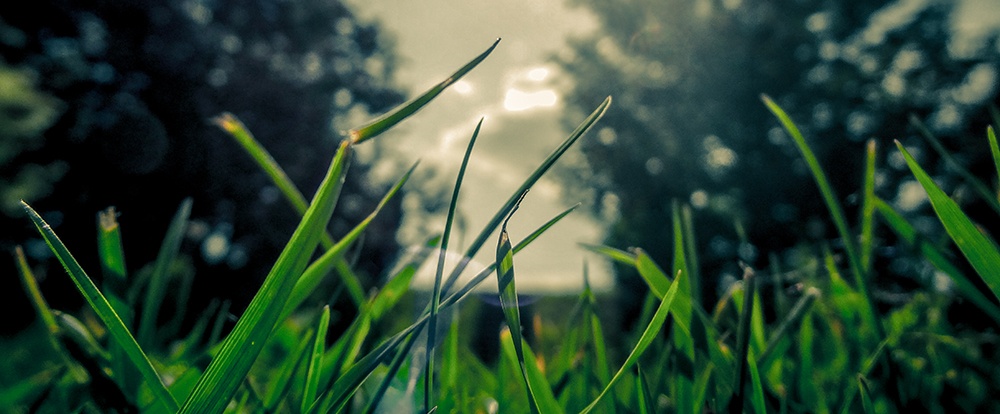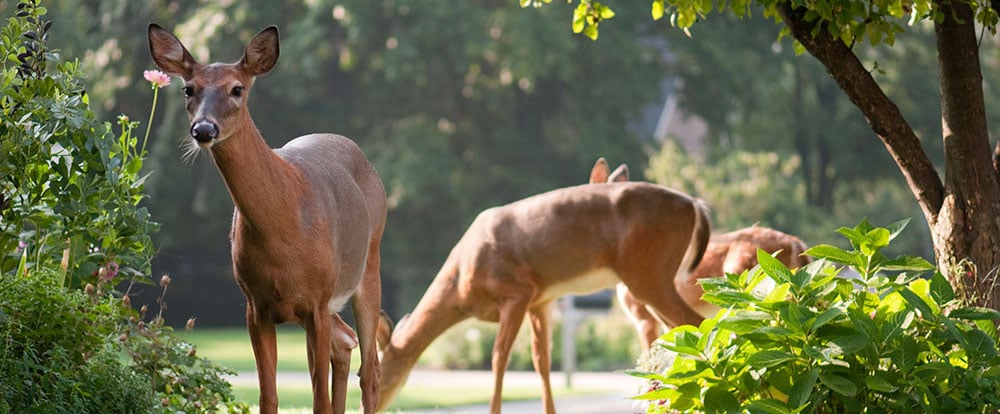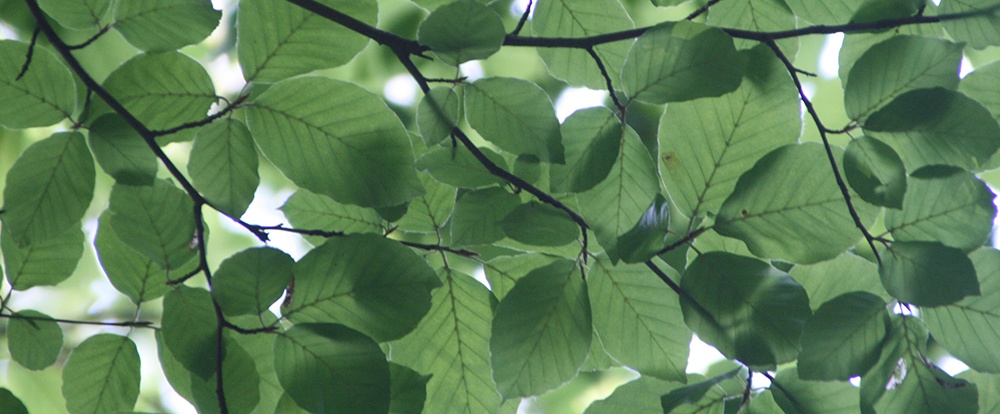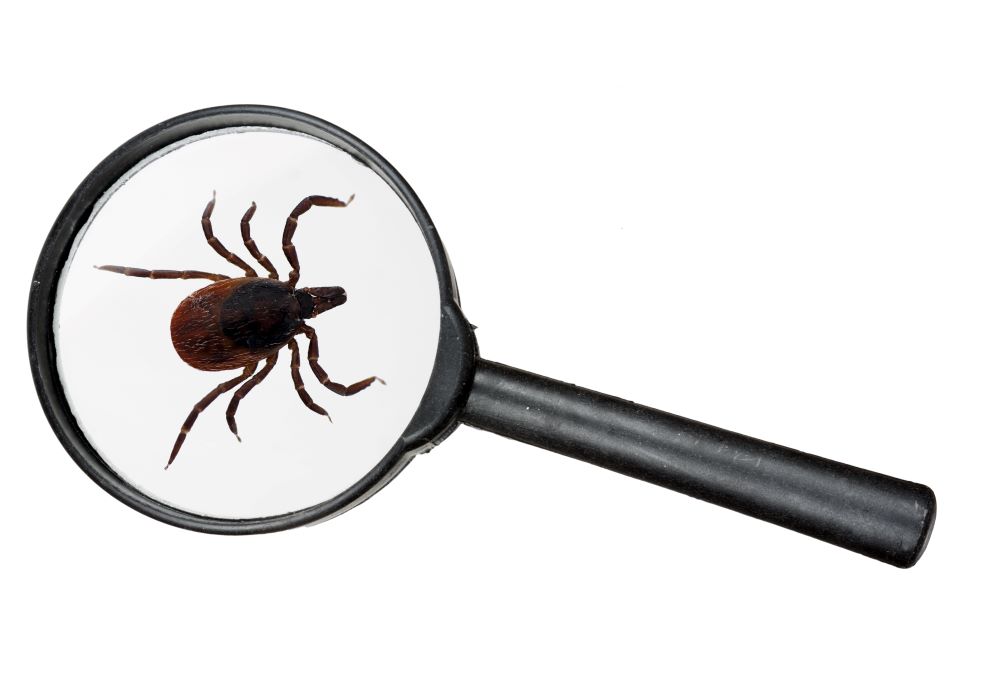Deer damage is estimated to cost around $2 BILLION dollars nationwide. $250 million of that cost reflects damage to properties around homes in communities like ours. It’s important to know the signs of deer damage so you can choose proactive, natural steps that protect your family and your property investment.
Read More...You Have No I-deer What Deer Damage Really Costs You…
Control Deer on Cape Cod with All-Natural Deer Repellents
There are more than 95,000 white-tailed deer in Massachusetts, with densities of about 80 deer per square mile in areas of Eastern Massachusetts. Cape Cod and the Islands have a growing white-tailed deer population bringing new concerns to the area. These concerns include deer damage on residential and commercial properties, as well as an increase in tick-borne illness such as Lyme disease as deer carry ticks close to homes in search of food.
Read More...What Deer Eat & How To Prevent Deer Damage
White-tailed deer are found throughout Massachusetts including Cape Cod and Martha's Vineyard. They are herbivores and consume a wide variety of herbaceous and woody plants native to the area. An adult white-tailed deer requires approximately 5-7 lbs of food per day, but energy demands for white-tailed deer vary seasonally. Even further, what deer eat can favor particular plants depending on the season. Energy demands are the greatest in the autumn rut and during severe winter weather.
Read More...Mosquito Control in Massachusetts
The Central Massachusetts Mosquito Control Project reports there are 51 mosquito species found in Massachusetts. So while you may feel that all mosquitoes are an equal nuisance, each species has unique behaviors, characteristics, and breeding patterns that make mosquito control in Massachusetts a challenge. Depending on the environment near your home, temperature and time of season- you may find species that are more common than others. Here are some common traits of mosquitoes in Massachusetts that will help you control them.
Read More...5 Ways to Mitigate Mosquito Misery
After a long and cold winter, New England is more than ready for summer, and Memorial Day marks the start of enjoying as much time as possible outside. However, as temperatures rise, so do the mosquito populations. Rain leaves the perfect conditions for mosquitoes to lay eggs, and soon after they hatch all at once!
Here are 5 facts about mosquitoes that may help you not only decrease your chances of getting bitten, but also lessen the miserable post-bite experience!
Read More...How is an organic lawn care plan different than the conventional 5 step program that we use now?
Most conventional programs act like steroids for the lawn, continuous chemical injections and pesticide applications whether the lawn needs it or not. Most lawns have a chemical dependency on high nitrogen fertilizers and become weak and susceptible to disease and insect damage.
Read More...Are chemical fertilizers and pesticides harmful?
Instead of trying to explain everything I know about the dangerous affects of lawn pesticides, I would like you to visit a few websites that will really open your eyes.
Read More...What is organic lawn management?
An organic lawn uses only natural methods and no synthetic fertilizers, pesticides or chemical herbicides. Conventional fertilizers and pesticides destroy the soil’s natural ecosystem, causing the lawn to become chemically dependent and relying on more chemicals to sustain it.
Read More...Earth Day at Pure Solutions
Each year, the Pure Solutions team launches intiatives to protect the environment and lower our impact both at home and at the office. Sustaining the planet for future generations is something we think about every day- including Earth Day! That's why we wanted to share with you tips for both home and at the office that will help you make better choices every day.
Read More...Tick Identification: American Dog Ticks vs Deer Ticks [Infographic]
American Dog Ticks and Deer Ticks are two common tick species found throughout the United States, especially in New England. Both species transmit tick-borne illnesses. Tick bite prevention starts with awareness. When you understand the behavior, seasonality, and appearance of different tick species in your local environment, you can better protect yourself and your loved ones .
Read More...








